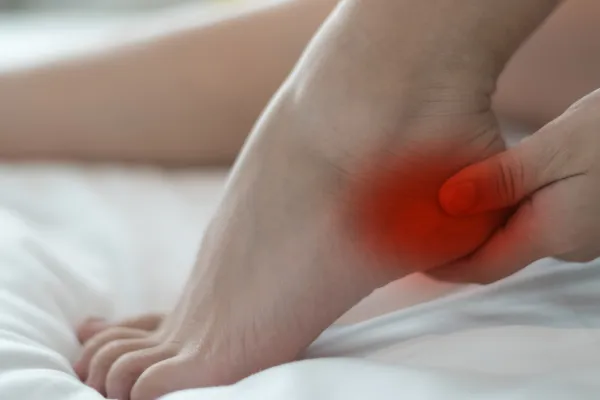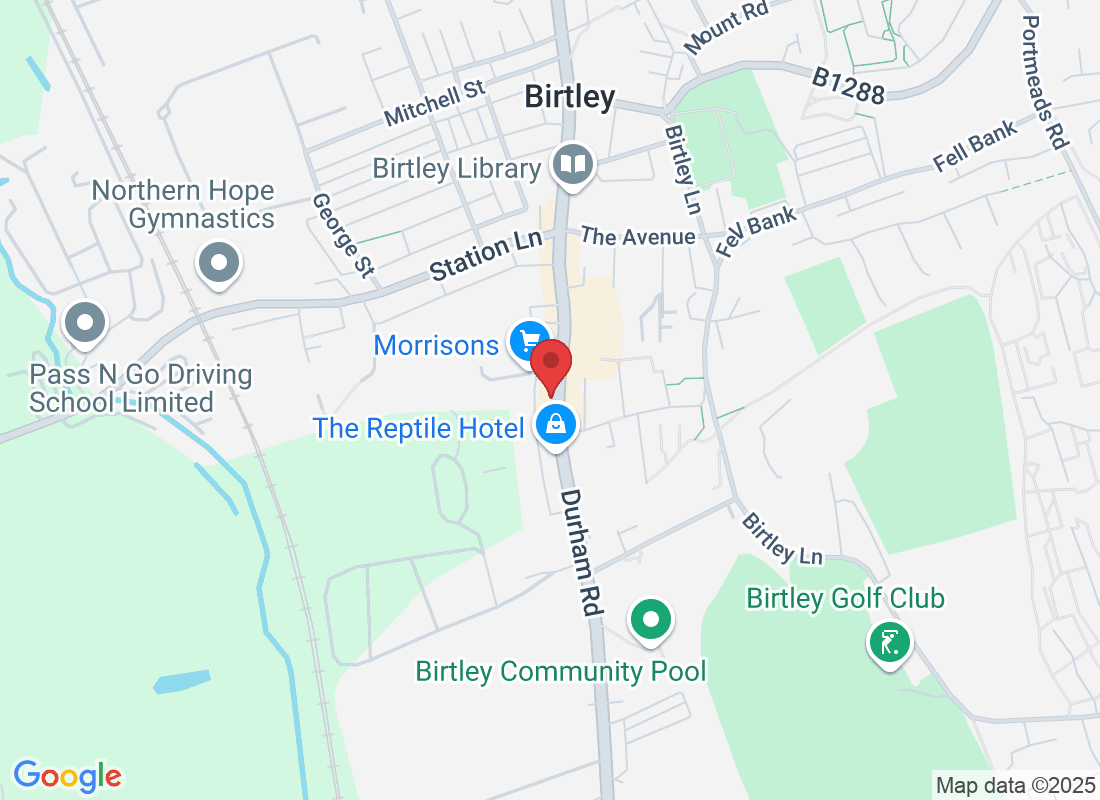Tips & Advice From Birtley Foot Clinic

What’s Behind Your Heel Pain? Common Causes and Effective Solutions
If you're reading this, chances are you're dealing with some form of heel pain. Whether it's a sharp, stabbing sensation in the morning or a dull ache that just won’t go away, heel pain can seriously impact your quality of life. You're not alone in this – heel pain is one of the most common complaints we see in foot care Birtley. But here's the good news: relief is possible, and understanding the root causes of your pain is the first step toward feeling better.
In this post, we’ll take a look at the common causes of heel pain, the symptoms to watch out for, and most importantly, what you can do to treat it and start feeling like yourself again.
What’s Causing Your Heel Pain?
There are several potential causes of heel pain, and understanding what's behind it is crucial for finding the right treatment. Here are some of the most common culprits:
1. Plantar Fasciitis
Plantar fasciitis is by far the most common cause of heel pain, and you’ve probably heard of it before. This condition occurs when the thick band of tissue that runs across the bottom of your foot (called the plantar fascia) becomes inflamed. The inflammation is often due to overuse, such as prolonged standing, running, or wearing shoes that don’t provide proper support.
People with plantar fasciitis often experience sharp pain in the bottom of the heel, especially with their first steps in the morning. As you move around, the pain may subside, but it can come back after periods of inactivity.
2. Heel Spurs
Heel spurs are bony growths that develop on the bottom of the heel bone. They often occur in conjunction with plantar fasciitis, as the strain from this condition can cause the body to form extra bone in an attempt to stabilize the area. While not everyone with heel spurs experiences pain, when they do cause discomfort, it often feels like a nagging ache in the heel, especially during movement.
3. Achilles Tendonitis
The Achilles tendon is the large tendon at the back of your heel that connects the calf muscles to the heel bone. Achilles tendonitis occurs when this tendon becomes inflamed, usually as a result of repetitive stress or overuse. If you've been increasing your physical activity, such as running or playing sports, you may notice heel pain that worsens after activity, along with stiffness in the tendon.
Unlike plantar fasciitis, which affects the bottom of the heel, Achilles tendonitis causes pain at the back of the heel and along the tendon itself.
4. Bursitis
Bursitis refers to the inflammation of a bursa, which is a small, fluid-filled sac that helps reduce friction and cushion pressure points between your bones and muscles. In the case of heel pain, the bursa located at the back of the heel (retrocalcaneal bursa) can become inflamed, leading to discomfort. Bursitis is often caused by repetitive stress or pressure on the heel, such as from wearing ill-fitting shoes or overuse during sports.
5. Stress Fractures
Stress fractures are tiny cracks in the bone that develop over time due to repetitive stress. While they are more commonly associated with athletes or those who engage in high-impact activities, stress fractures in the heel are also possible. These fractures can cause localized pain and tenderness in the heel, often worsening with activity.
Symptoms of Heel Pain
Understanding the symptoms of heel pain can help you identify which condition might be causing your discomfort. While the specific symptoms may vary depending on the cause, here are some common signs to look out for:
Sharp pain in the bottom of the heel (often with the first steps in the morning) – Common in plantar fasciitis.
Pain that worsens with prolonged standing or walking – Seen in plantar fasciitis, heel spurs, and bursitis.
Swelling or redness around the heel – This may occur with tendonitis, bursitis, or a stress fracture.
Pain at the back of the heel – This points to Achilles tendonitis or bursitis.
Tenderness or warmth in the affected area – Common in all types of heel pain, particularly with inflammation.
Treatment Options: Finding Relief
Now that we’ve covered some of the common causes and symptoms of heel pain, let’s talk about how you can manage it and start feeling better.
1. Rest and Ice
One of the first things to do when you experience heel pain is to rest and avoid activities that aggravate the pain. Applying ice to the affected area for 15-20 minutes several times a day can help reduce inflammation and numb the pain.
2. Footwear Matters
Wearing shoes with proper arch support, cushioning, and a firm heel can make a big difference. Avoid shoes that lack support, such as flip-flops or high heels, and consider orthotic insoles to provide extra comfort.
3. Stretching and Strengthening Exercises
Stretching the calf muscles and plantar fascia, along with strengthening exercises for the feet, can help alleviate heel pain and improve foot mechanics. A simple exercise like rolling a tennis ball under your foot can help loosen up the plantar fascia.
4. Custom Orthotics
If your heel pain is related to issues like flat feet or high arches, custom orthotics can help. These insoles are tailored to your foot shape and can provide additional support, improving foot function and relieving pain.
5. Professional Care
If your heel pain persists, it's important to seek professional help. A foot care expert can help diagnose the cause of your pain and create a tailored treatment plan that might include physical therapy, medications, or other interventions.
Foot Care Birtley: We're Here to Help
At Birtley Foot Clinic, we understand how frustrating and limiting heel pain can be. If you're struggling with any of the conditions we've discussed, our team is here to help. We’ll work with you to identify the root cause of your pain and develop a treatment plan that gets you back on your feet as soon as possible. You don’t have to suffer in silence – relief is possible, and we’re here to guide you through it.
If you're ready to take the first step toward pain-free feet, don't hesitate to reach out. We're here to help!
Ask Birtley Foot Clinic And Their Team
Fill in the form to request a call from our team. One of our team members will call you for FREE and answer any questions or concerns you may have about your condition
Where To Find Birtley Foot Clinic

If you have any questions before scheduling an appointment or for general inquiries, please use the contact us button below. Our team will promptly reach out to assist you.
Opening Hours
Monday: 09.00 - 17.00
Tuesday: 09.00 - 17.00
Wednesday: 09.00 - 17.00
Thursday: 09.00 - 17.00
Friday: 09.00 - 17.00
Saturday: 09.00 - 17.00
Sunday: Closed

